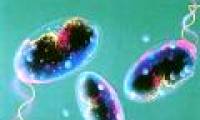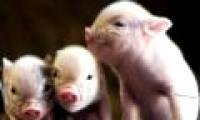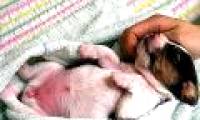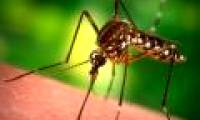
Located in our genes is a 'clock' that controls when we sleep, when we wake up and when we eat.

This is astonishing, a difficult question to answer to local people when they witness an apple tree fruit in January of the coldest decade of the decade.

Life on a height of 4,900 m forces Tibetans to evolve very quickly to survive.

French scientists at the National Center for the first time produced electricity from a cactus that could light a light bulb.

American scientists from Chapel Hill Sub-University, University of North Carolina, said they found calcium atoms could control bacterial activity.

British scientists have suggested considering a global patent for the type of hemoglobin, an important component in the blood they create.

The world's first humanized camel was born at the camel reproduction center in Dubai (United Arab Emirates) weighing 30 kg.

On April 22, Korean scientists announced that they cloned a pig to get transgenic transplanted organs for humans.

Korean scientists have successfully cloned four dogs capable of emitting red light in the dark.

Isolongifolenone, a natural compound found in Tauroniro (Humiria balsamifera) in North America, is found to be able to block mosquitoes and lice.
 Located in our genes is a 'clock' that controls when we sleep, when we wake up and when we eat.
Located in our genes is a 'clock' that controls when we sleep, when we wake up and when we eat. This is astonishing, a difficult question to answer to local people when they witness an apple tree fruit in January of the coldest decade of the decade.
This is astonishing, a difficult question to answer to local people when they witness an apple tree fruit in January of the coldest decade of the decade. Life on a height of 4,900 m forces Tibetans to evolve very quickly to survive.
Life on a height of 4,900 m forces Tibetans to evolve very quickly to survive. French scientists at the National Center for the first time produced electricity from a cactus that could light a light bulb.
French scientists at the National Center for the first time produced electricity from a cactus that could light a light bulb. American scientists from Chapel Hill Sub-University, University of North Carolina, said they found calcium atoms could control bacterial activity.
American scientists from Chapel Hill Sub-University, University of North Carolina, said they found calcium atoms could control bacterial activity. British scientists have suggested considering a global patent for the type of hemoglobin, an important component in the blood they create.
British scientists have suggested considering a global patent for the type of hemoglobin, an important component in the blood they create. The world's first humanized camel was born at the camel reproduction center in Dubai (United Arab Emirates) weighing 30 kg.
The world's first humanized camel was born at the camel reproduction center in Dubai (United Arab Emirates) weighing 30 kg. On April 22, Korean scientists announced that they cloned a pig to get transgenic transplanted organs for humans.
On April 22, Korean scientists announced that they cloned a pig to get transgenic transplanted organs for humans. Korean scientists have successfully cloned four dogs capable of emitting red light in the dark.
Korean scientists have successfully cloned four dogs capable of emitting red light in the dark. Isolongifolenone, a natural compound found in Tauroniro (Humiria balsamifera) in North America, is found to be able to block mosquitoes and lice.
Isolongifolenone, a natural compound found in Tauroniro (Humiria balsamifera) in North America, is found to be able to block mosquitoes and lice.









 Why did the ancient Babylonian civilization perish? Was it because they considered 'that thing' a daily meal?
Why did the ancient Babylonian civilization perish? Was it because they considered 'that thing' a daily meal? Just discovered a 72km 'tear in the Earth', the world's second largest country is in fear of a tsunami attack
Just discovered a 72km 'tear in the Earth', the world's second largest country is in fear of a tsunami attack Top 7 facts about the hottest place in the world, where you can fry eggs at outdoor temperature
Top 7 facts about the hottest place in the world, where you can fry eggs at outdoor temperature The Qing Dynasty collapsed, what surname did 20,000 royal descendants change to to integrate into the new era?
The Qing Dynasty collapsed, what surname did 20,000 royal descendants change to to integrate into the new era? After 389 days in the Arctic, costing more than $160 million, hundreds of scientists brought back bad news: What was it?
After 389 days in the Arctic, costing more than $160 million, hundreds of scientists brought back bad news: What was it? How long does it take to fall in love with someone?
How long does it take to fall in love with someone? How much silver has ever been discovered in the world?
How much silver has ever been discovered in the world? How does an atomic bomb work?
How does an atomic bomb work?